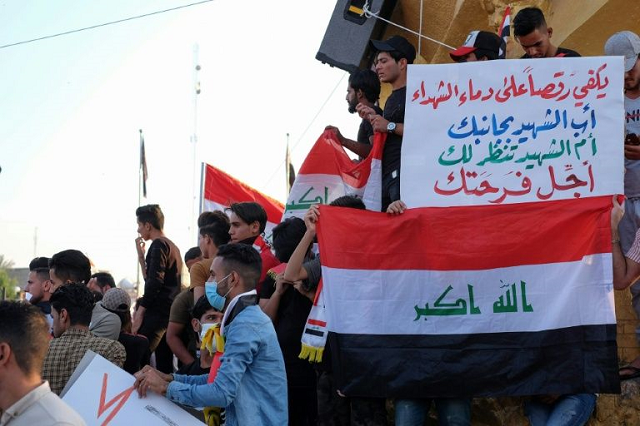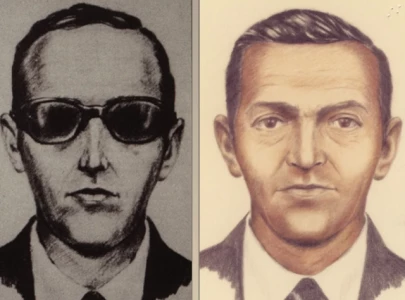
In Baghdad, university-age demonstrators parked cars in the middle of main thoroughfares, blocking traffic on the first day of the work week in the Muslim-majority country.
Iraq protests enter second month, defying pledges of reform
Police officers manning nearby checkpoints looked on but did not intervene.
Other students took part in sit-ins at their schools, and the country's national teachers union extended the strike they began last week.
The engineering, doctors and lawyers syndicates have all backed the protests.
In Kut to the east, protesters sealed off main roads and bridges and most schools and government agencies were shut.
"We decided to cut the roads as a message to the government that we will keep protesting until the corrupt people and thieves are kicked out and the regime falls," said Tahseen Nasser, a 25-year-old protester.
"We're not allowing government workers to reach their offices, just those in humanitarian fields," including hospitals and police officers, he said.
Further south in Hillah, Nasiriyah, Diwaniyah and the holy city of Karbala most government offices were not open.
And in Basra, the oil-rich port city, public schools were shut down for the first time since the movement erupted last month.
Iraq president vows early polls as protesters demand more
Demonstrations broke out in Baghdad on October 1 in outrage at unemployment, poor public services and corruption, quickly spreading to the south.
The activists were confronted by security forces, and 157 people - most of them demonstrators in Baghdad - were killed in six days of rallies.
But the protests resumed on October 24 and quickly swelled with the support of students, who skipped class to protest despite orders from Iraq's higher education minister to stay away from the rallies.


1732538123-0/BeFunky-collage-(90)1732538123-0-165x106.webp)

1732536148-0/ariana-(1)1732536148-0-165x106.webp)
1732518687-0/Copy-of-Untitled-(78)1732518687-0-270x192.webp)











COMMENTS
Comments are moderated and generally will be posted if they are on-topic and not abusive.
For more information, please see our Comments FAQ